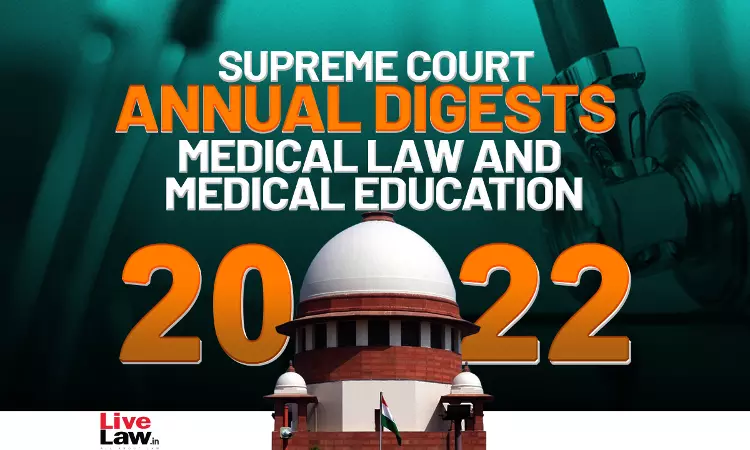Supreme Court Annual Digest 2022- Medical Law And Medical Education
LIVELAW NEWS NETWORK
17 Jan 2023 5:31 PM IST

Next Story
17 Jan 2023 5:31 PM IST
Admission and Fee Admission and Fee Regulatory Committee (for Professional Courses offered in Private UnAided Professional Institutions) Rules, 2006 (Andhra Pradesh); Rule 4 - The education is not the business to earn profit. The tuition fee shall always be affordable. Determination of fee/review of fee shall be within the parameters of the fixation rules and shall have direct nexus...
